Container homes have been gaining significant popularity due to their unique design, affordability, and eco-friendly nature. As more people seek alternative housing solutions, container homes offer an innovative and sustainable option.
However, when it comes to building a container home, a key question arises: Are container homes legal in the UK?
Table of Contents
Legal Considerations for Container Homes in the UK

A. Understanding the Concept of Legality in Relation to Container Homes
Container homes offer a unique and innovative approach to housing, but it is crucial to understand the legal aspects associated with them in the UK.
While container homes have gained popularity over the years, it is important to ensure that your container home project complies with all relevant regulations.
Read More on Container Home Builders in Virginia: Avoid The Unscrupulous
B. Importance of Complying with Local Laws and Regulations
To avoid unnecessary legal issues and ensure a smooth process, it is essential to comply with local laws and regulations when building a container home in the UK. Failure to do so may result in fines, penalties, or even forced removal of your container home.
Planning Permission for Container Homes
A. Exploring the Significance of Planning Permission
Before you start on your journey of building a container home in the UK, it is important to understand the significance of planning permission.
Take note that planning permission is a legal requirement that ensures your construction project aligns with the regulations and policies set by the local council.
By obtaining planning permission, you demonstrate that your container home meets the necessary standards and complements the aesthetics of the surrounding area.
Read More on Container Home Builders in Washington – Affordable Homes
B. Likelihood of Obtaining Planning Permission for Container Homes
The likelihood of obtaining planning permission for container homes in the UK depends on various factors. Each local council has its own set of guidelines and restrictions when it comes to granting planning permission.
While some councils are open to innovative housing solutions like sea container homes, others may have stricter regulations in place. It is crucial to research and understand the specific policies of your local council before proceeding with your container home project.
Read More on Container Swimming Pool Cost UK: Simple Detailed Guide
C. Application Process for Acquiring Planning Permission
To begin with, the application process for acquiring planning permission for container homes involves submitting detailed plans and documentation to the local council. This typically includes architectural drawings, floor plans, and a comprehensive project description.
Your application will be reviewed by the council’s planning department, who will assess the suitability of your container home project based on factors such as visual impact, environmental considerations, and compliance with building regulations.
It is advisable to seek professional assistance from architects or planning consultants familiar with container home projects to ensure your application meets all the necessary requirements and increases the likelihood of approval.
Read More on Shipping Container Storm Shelter Cost: All You Need to Know
Local Council Policies and Restrictions
When it comes to the permissibility of container homes in the UK, local council policies play a crucial role. These policies outline the rules and regulations that govern the construction and installation of container homes in specific areas. Understanding these policies is essential for anyone considering building a container home.
The Role of Local Council Policies in Determining Permissibility
Local council policies are designed to ensure that any construction within their jurisdiction complies with safety, aesthetic, and environmental standards. These policies act as guidelines to determine whether container homes are allowed in specific areas.
Each council has its own set of policies that determine the permissibility of container homes. These policies take into account factors such as zoning, building codes, and neighborhood character.
Read More on Best Shipping Container Paint – To Protect And Enhance
The Variations in Rules and Regulations Across Different Councils
It’s important to note that local council policies regarding container homes can vary significantly from one area to another. Some councils may be more lenient and open to container home construction, while others may have stricter regulations in place.
For example, a council in a rural area may be more open to container homes as a means of affordable housing, whereas a council in a densely populated city may have more restrictions due to aesthetic concerns.
How to Find Information About Specific Council Policies in Your Area
If you are considering building a container home, it’s crucial to research and understand the specific council policies in your area. Here are some steps you can take to find this information:
- Visit the council’s official website and search for planning and building regulations.
- Look for specific information regarding container homes or alternative housing options.
- Contact the council directly and inquire about their policies on container homes.
- Consult with a local architect or planning consultant who can guide you through the process and provide accurate information.
By familiarizing yourself with your local council’s policies and restrictions, you can ensure that you are well-informed and prepared when it comes to building your container home.
Read More on Best Shipping Container Lock For Safe Transportation and Storage
Structural Integrity and Safety Standards
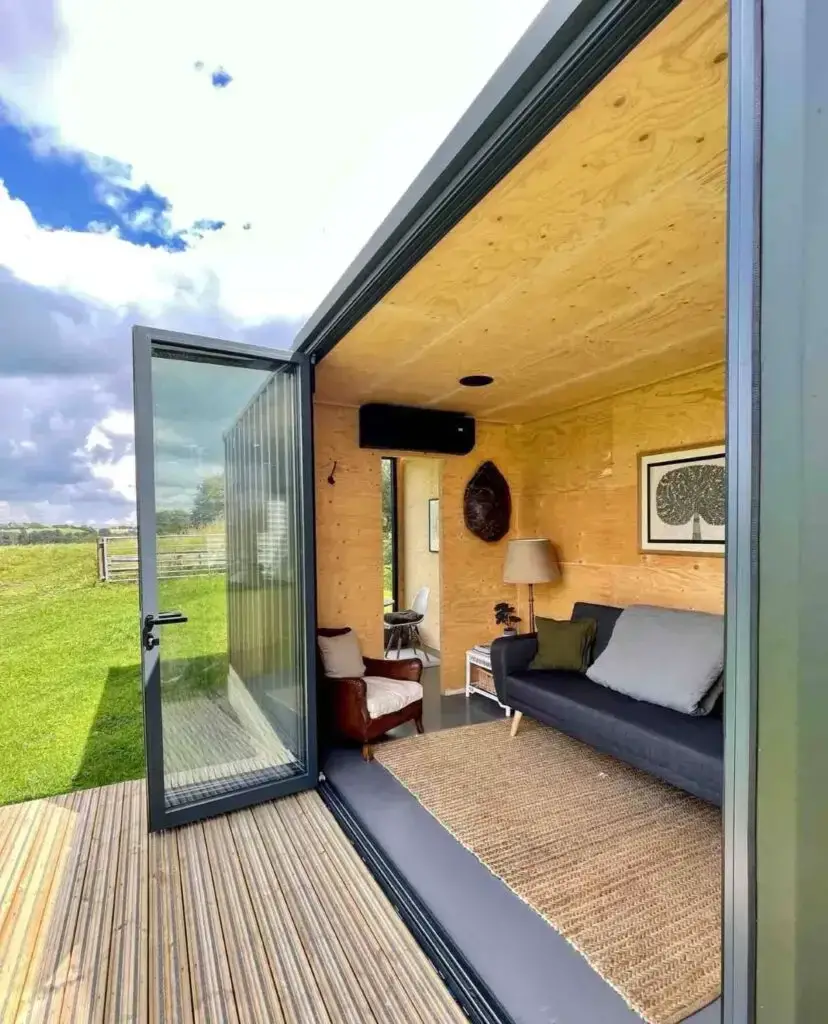
When it comes to container homes, it is natural to have concerns about their structural integrity. However, container homes can be built to meet safety standards and regulations to ensure your peace of mind.
Concerns Regarding Container Homes’ Structural Integrity
Container homes, when built correctly, can be just as structurally sound as traditional homes. The sturdy steel structure of shipping containers provides a solid foundation for building a safe and secure home.
However, it is crucial to work with qualified professionals who understand the unique challenges and considerations of constructing container homes.
Professional architects and engineers specializing in container home construction can assess the suitability of your chosen container and develop an effective structural plan.
They will consider factors such as reinforcement, insulation, and load-bearing to ensure the structural integrity of your container home.
Meeting Safety Standards and Regulations for Container Homes
In the UK, container homes must comply with the Building Regulations, which outline the safety standards for all types of dwellings. These regulations cover various aspects of construction, including fire safety, ventilation, insulation, and structural stability.
As a container home owner, you must ensure that your home meets the relevant safety standards. This can be achieved through proper insulation, fireproofing, and ventilation systems, as well as ensuring the structural stability of the container itself.
Read More on Container Home Builders in Tennessee: Promising Sustainability
Potential Modifications Required to Ensure Compliance with Safety Standards
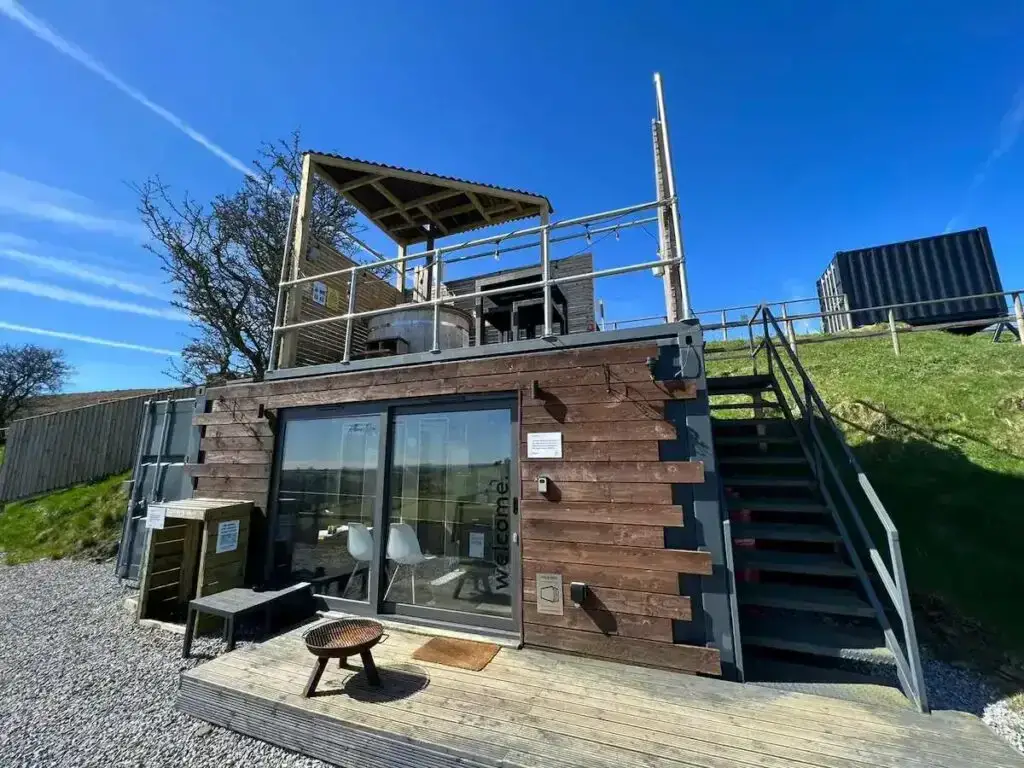
Adapting a shipping container into a safe and legal dwelling may require certain modifications. These modifications may include adding windows and doors, installing insulation, reinforcing the structure, and providing adequate ventilation and fire safety measures.
It is important to consult with professionals who have experience in container home construction to ensure that all necessary modifications are made.
By following the required safety standards and regulations, you can have peace of mind knowing that your container home is both legal and safe to live in.
Land Ownership and Container Homes
A. The Connection Between Container Homes and Land Ownership in the UK
Container homes have become popular in recent years as a cost-effective and sustainable housing solution. However, one of the main considerations when it comes to container homes is the issue of land ownership.
B. Permissibility of Placing Container Homes on Privately Owned Land
In the UK, if you own the land where you intend to place a container home, you generally have the right to do so. However, it is important to check with your local council to ensure that there are no specific restrictions or limitations in place.
C. Restrictions and Limitations on Container Homes in Designated Areas
It is worth noting that certain designated areas, such as conservation areas or areas of outstanding natural beauty, may have stricter regulations regarding the use of container homes.
In these cases, you may need to obtain planning permission or seek special dispensation to proceed with your container home project.
Read More on How To Get Permits For Container Homes In Florida
Insurance and Financing Options for Container Homes
A. Overview of Insurance Considerations for Container Homes
When it comes to insuring your container home in the UK, there are a few things to consider. As container homes are still relatively new in the market, insurance providers may have different policies and pricing structures compared to traditional homes.
It is important to thoroughly research and compare insurance options to find the best coverage for your container home.
B. Challenges and Specific Considerations for Insuring Container Homes
Insuring a container home may come with its own set of challenges. Some insurance providers may have limitations on coverage for container homes due to concerns over structural integrity, fire hazards, and other risks associated with unconventional housing.
It is crucial to find an insurance provider who understands and is willing to insure container homes, ensuring that you have the proper coverage in place.
Read More on Is Planning Permission Needed For Container Home? Expert Guide
C. Financing Options Available for Individuals Interested in Container Homes
If you’re considering financing your container home project, there are several options available. Traditional mortgage lenders may be hesitant to provide loans for container homes, as they are not as widely accepted in the housing market.
However, there are specialized lenders and financial institutions that offer loans specifically for container homes. Additionally, personal loans and crowdfunding platforms can be alternative options for funding your container home project.
Permitted Development Rights and Container Homes
When considering building a container home in the UK, it’s important to understand the concept of permitted development rights.
These rights allow homeowners to make certain changes to their properties without the need for planning permission, saving time and money in the process.
Understanding Permitted Development Rights and Their Relevance to Container Homes
Permitted development rights were introduced to streamline the planning process and provide homeowners with more flexibility in making minor alterations to their properties.
These rights cover a wide range of development, including extensions, conversions, and even the installation of certain types of temporary structures.
For container homes, it is crucial to determine if they fall within the scope of permitted development rights or if planning permission is required. This can have significant implications for the feasibility and cost of the project.
Read More on Solar Energy: Their Different Types And How They Perform
Determining if Container Homes Fall Under Permitted Development Rights
The classification of container homes under permitted development rights depends on several factors. Firstly, the location of the property plays a role, as different rules may apply in conservation areas, National Parks, or Areas of Outstanding Natural Beauty.
Additionally, the size and dimensions of the container home are considered. In general, container homes that do not exceed certain height and volume restrictions may be considered as permitted development.
However, it is essential to consult with local authorities and seek professional advice to ensure compliance with the specific regulations in your area.
Advantages and Disadvantages of Permitted Development Rights for Container Homes
The use of permitted development rights for container homes offers several advantages. It eliminates the need for time-consuming and potentially costly planning permission applications, allowing homeowners to proceed with their projects more expeditiously.
However, it’s crucial to note that permitted development rights have limitations. While they offer flexibility for certain types of development, they do not grant unlimited freedom.
Certain conditions and restrictions may still apply, such as the need to maintain the overall appearance of the area or adhere to specific design standards.
It is advisable to thoroughly research the permitted development rights applicable to container homes in your area and consult with professionals who specialize in this field.
This will ensure that your container home project remains within the boundaries of the law while maximizing the benefits of permitted development rights.
Read More on Container Home Insurance: Everything You Need To Know
Land Use Restrictions and Container Homes
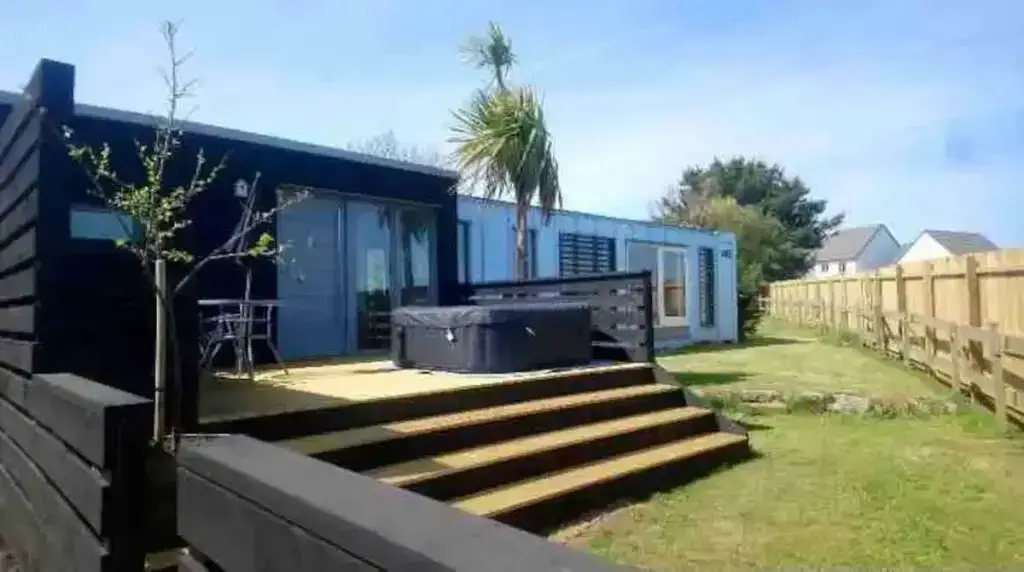
When considering building a container home in the UK, it’s important to be aware of any land use restrictions that may affect your plans. Here, we will explore the specific limitations and restrictions that can impact the viability of container homes in certain areas.
Identifying Specific Land Use Restrictions Affecting Container Homes
Before embarking on your container home project, you should thoroughly research and understand the land use restrictions that may be in place. These restrictions could include:
- Zoning regulations: Different areas may have specific zoning regulations that dictate what type of structures are allowed.
- Protected areas: Certain locations, such as conservation areas or historical sites, may have restrictions on any new construction.
- Residential areas: In some cases, residential areas may have regulations that govern the types of residential structures allowed, which could include limitations on container homes.
It is crucial to identify these specific land use restrictions early on to determine if building a container home is feasible on your chosen site.
Limitations and Restrictions on Container Homes in Certain Zones or Protected Areas
In certain zones or protected areas, there may be additional limitations and restrictions on container homes. These could include:
- Height restrictions: Some areas may have height restrictions that limit the size and dimensions of structures, including container homes.
- Visual impact assessment: Certain protected areas may require a visual impact assessment to ensure that the container home design aligns with the surrounding environment.
- Heritage considerations: If your chosen site is in close proximity to a heritage site, you may need to adhere to specific guidelines and restrictions to preserve the historical significance of the area.
These limitations and restrictions are put in place to maintain the character and integrity of certain areas, but they can significantly impact the feasibility of building a container home in those locations.
Before committing to a specific site, consult with local authorities and planning departments to understand any potential limitations and restrictions that may affect your container home project. This due diligence will help ensure a smoother planning and building process.
Read More on What Is Green Energy? Simplest Expert Explanation
Container Homes and Sustainable Living
Container homes have gained popularity not only for their unique design and affordability but also for their association with sustainable living. Let’s explore the various aspects of container homes in relation to sustainable housing.
The Link Between Container Homes and Sustainable Living
Container homes are often considered a sustainable housing option due to several reasons. Firstly, using shipping containers for housing repurposes these steel structures, giving them a new lease on life instead of being discarded. This helps reduce waste and the need for additional raw materials.
Additionally, container homes can be built using eco-friendly construction techniques. For instance, incorporating insulation materials with high thermal efficiency can promote energy conservation and reduce the need for excessive heating or cooling.
Feasibility and Legality of Container Homes As a Sustainable Housing Option
Container homes can be a feasible option for sustainable living, but it’s essential to consider the legality of such structures in the UK.
As discussed earlier, planning permission and local council policies play a crucial role in determining the feasibility of container homes in specific areas.
However, with the increasing recognition of sustainable housing solutions, some local authorities are becoming more receptive to container homes.
It is advisable to consult with planning departments and seek professional advice to ensure compliance with legal requirements.
Read More on Luxury Container Hotels – Offering Unique Experiences
Environmental Considerations and Benefits of Container Homes
Container homes offer several environmental benefits. Firstly, their construction requires fewer resources compared to traditional methods, which means less energy consumption and lower carbon emissions.
Furthermore, repurposing shipping containers helps reduce the demand for new construction materials and the associated environmental impact.
Additionally, container homes can be designed to incorporate eco-friendly features such as rainwater harvesting systems, solar panels, and efficient insulation.
These elements contribute to reducing water usage and energy consumption, making container homes an environmentally conscious choice.
In conclusion, container homes have the potential to align with sustainable living principles. However, it is crucial to consider legal considerations and consult with professionals to ensure compliance and feasibility in specific locations.
Read More on Affordable Homes Of South Texas Weslaco – Expert Review
Case Studies and Success Stories of Container Homes in the UK
A. Inspiration From Real-life Examples of Successful Container Home Projects
1. The Green Box Project – In the heart of Swansea, a couple transformed a shipping container into a beautiful home. The unique design garnered attention from architectural enthusiasts and showcased the potential of container homes in urban and rural areas.

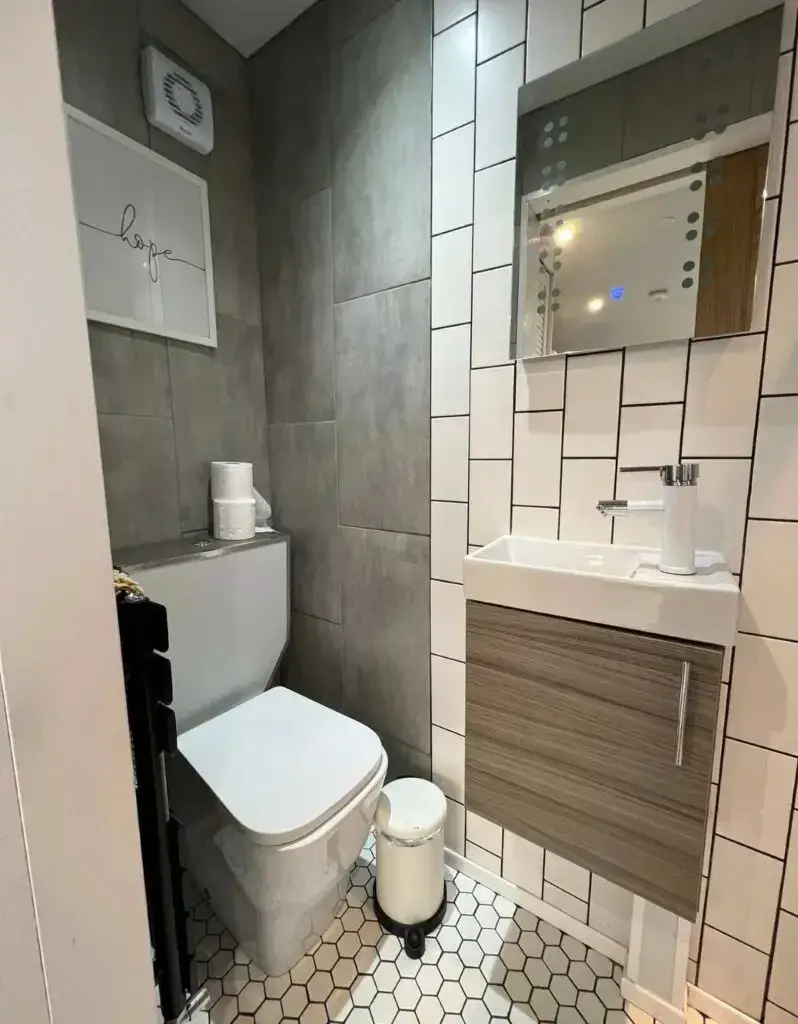


2. The Hillside Haven – Situated in the picturesque countryside of Yorkshire, this container home blends seamlessly with its surroundings. The owners utilized recycled materials and incorporated sustainable features, making it a standout example of eco-friendly living.
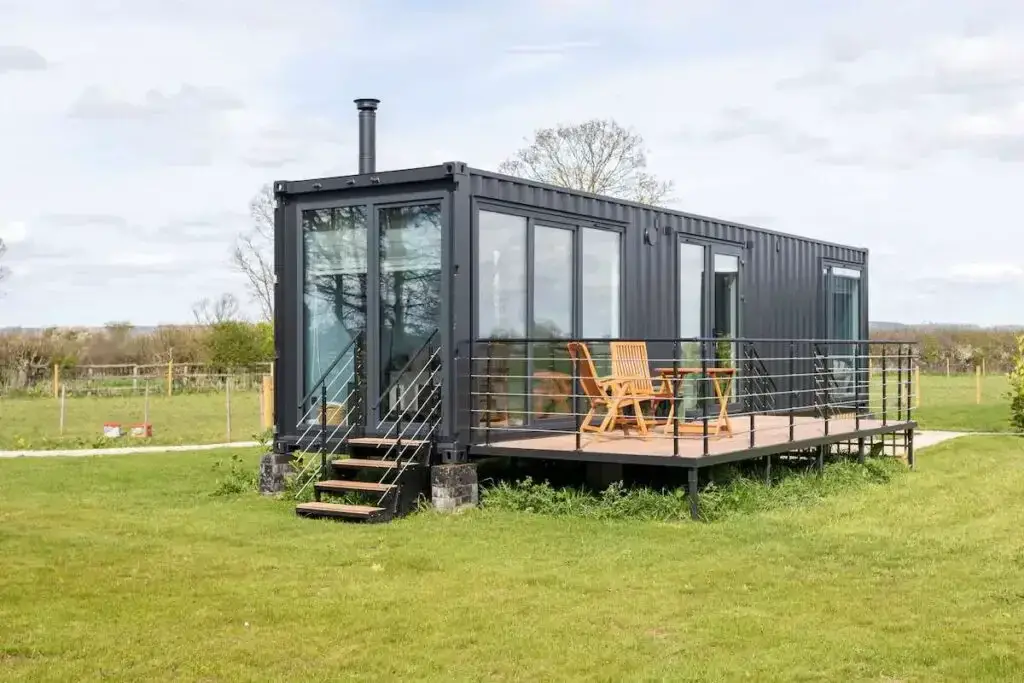


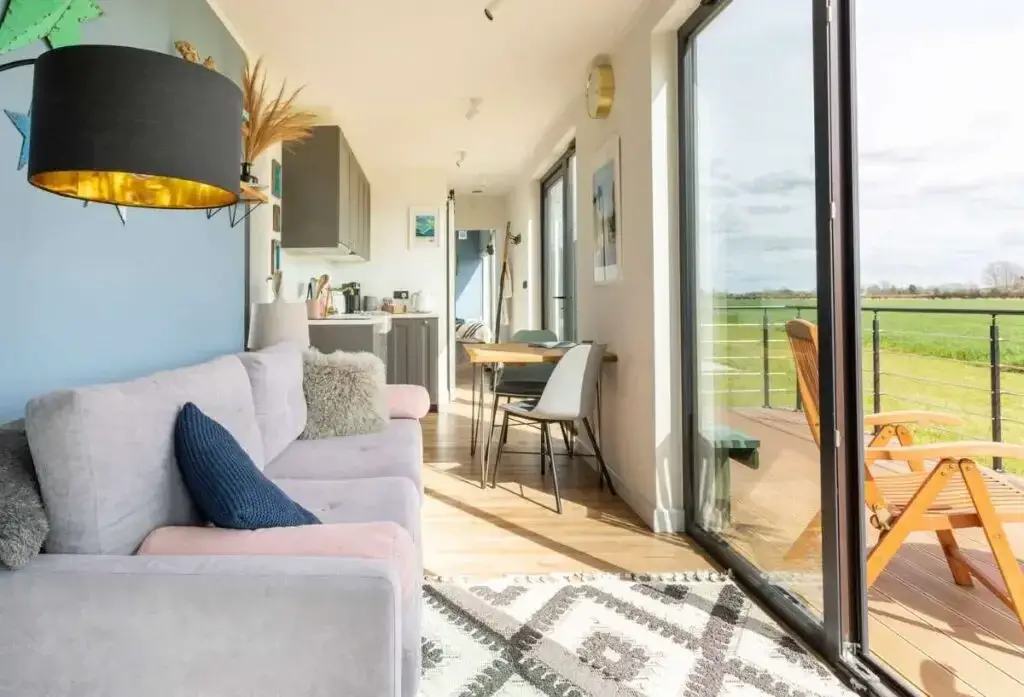

B. Insights Into the Legal Process and Challenges Associated with Container Homes
1. The Southampton Oasis – On an empty lot in Southampton, 22 units for the vulnerable in the society have been built by Hugg Homes. Their success in navigating through the legal processes sheds light on the possibilities for container homes even in restrictive areas.
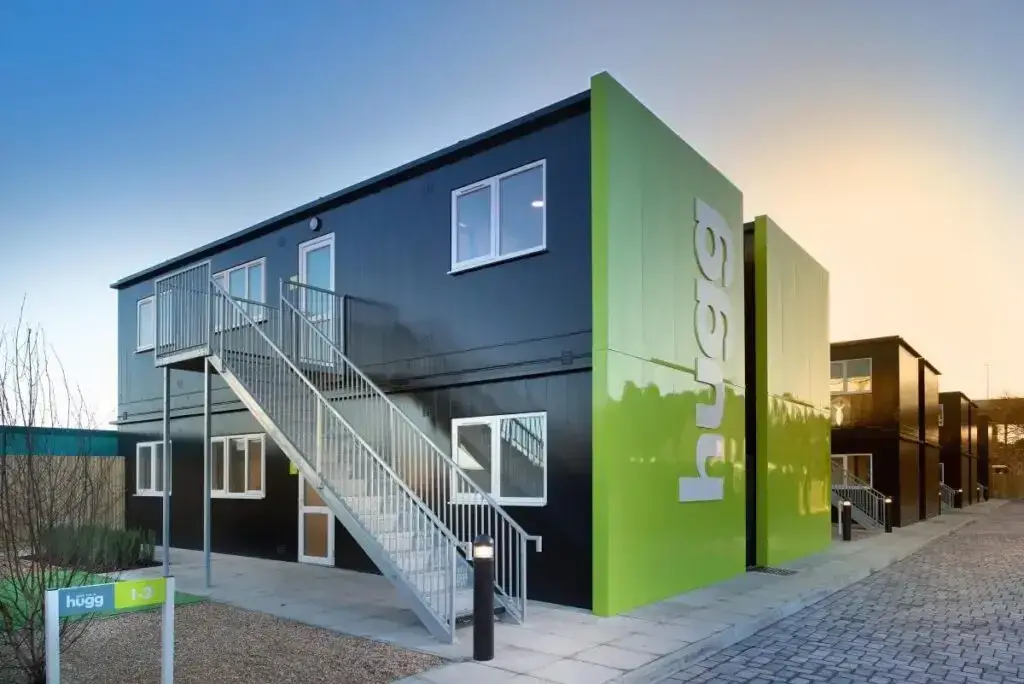


2. The Coastal Retreat – This container home in Cornwall faced similar challenges, but by working closely with their local council and complying with safety regulations, the owners were able to establish a legally compliant and beautiful home within a coastal area.
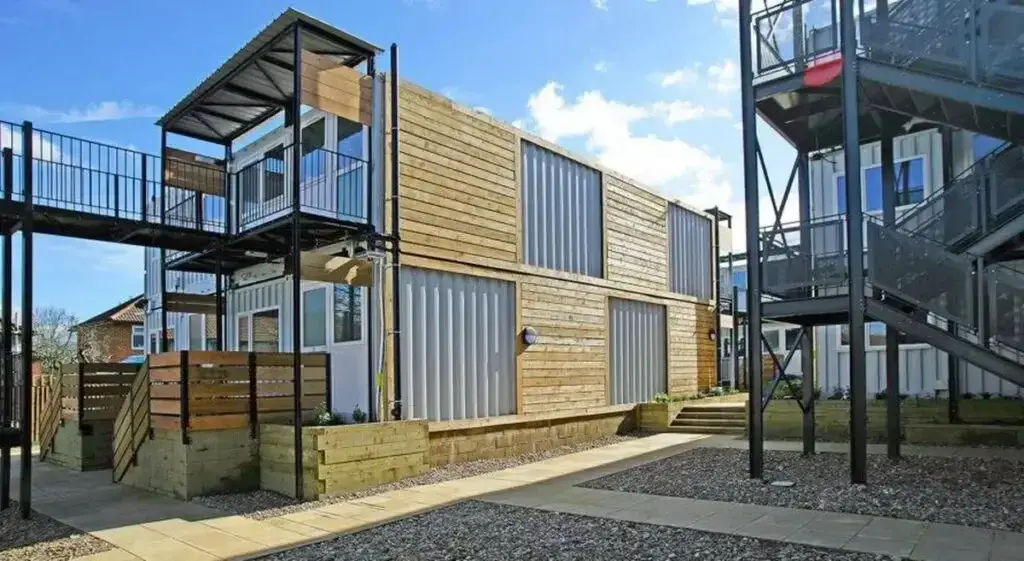
C. Benefits and Lessons Learned from Container Home Success Stories
1. The Green Living Community – An innovative company called Launchpad in Bristol came up with a brilliant idea to build an affordable container home community. By sharing resources and knowledge, they not only created affordable housing solutions but also fostered a strong sense of community and sustainable living.


2. The Modern Starter Home – For a young couple in Manchester, a container home provided an innovative solution to get a foot on the property ladder. Their success story highlights the affordability and flexibility that container homes can offer to first-time buyers.
Read More on Experience Luxury Living In Tasmania With Stunning Container Homes
Conclusion
After examining the various legal considerations surrounding container homes in the UK, it is evident that there are several factors to take into account when considering this unique housing option.
By exploring the planning permission requirements, local council policies, and land use restrictions, individuals can better understand the viability of container homes in their desired areas.
It is important to consider the structural integrity and safety standards, as well as insurance and financing options, to ensure a secure and comfortable living environment.
While container homes offer benefits such as sustainable living and flexibility in design, it is crucial for individuals to thoroughly research and understand the specific regulations and restrictions in their location. This includes exploring permitted development rights and seeking expert advice on land ownership and use.
Container homes have shown promise in the UK, with successful case studies and success stories highlighting their potential as a viable housing option. However, it is essential to consider the unique challenges and complexities involved.
In conclusion, if you are interested in container homes in the UK, it is advised to explore the legal requirements, consult with local authorities, and seek professional advice to ensure compliance with regulations. By doing so, you can determine the feasibility and legality of container homes in your desired location.
Read More on Are Container Homes Legal in Miami? Find Out the Facts!

